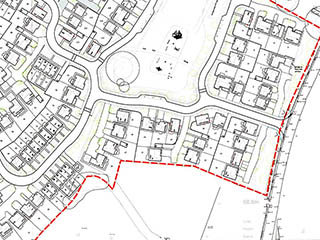Greenfield Land Promotion

Project Details
Greenfield Land Promotion for Market Housing
In March 2012, the Government set out the National Planning Policy Framework (NPPF), which was a guide to England’s regional planning policies. The key policy change that this created, was that Local Authorities were now obliged to prove a five-year supply of housing land at a level allocated to them by wider government. The upshot of this was, that unless a Council could demonstrate a five-year housing supply, then any proposed housing development in a sustainable location, which was adjacent to a settlement should be granted planning permission, unless there were exceptional circumstances. Exceptional circumstances could be location within the greenbelt, landscape issues, or proximity of listed buildings, an Area of Outstanding Natural Beauty, or a Site of Special Scientific Interest.
Arcadian Estates had an existing relationship with the landowner of a piece of land which was adjacent to a large village of circa 3000 population. Consequent of the change in policy, Arcadian Estates contacted the landowner to ascertain whether he would be interested in selling land for residential development. Arcadian Estates then represented the landowner, and negotiated a planning promotion agreement with a national land promoter. The land promoter submitted a planning application for 120 houses, which was refused by the local council. This decision was appealed by the land promoter, and after an exhaustive public enquiry lasting seven days, the government Inspector allowed the Appeal. The land promoter then packaged the land for sale with a comprehensive technical portfolio, and marketed the site by competitive tender to the housebuilding industry. The land was sold to a regional housebuilder in December 2016.
Whilst the landowner paid a share of the land sale to the land promoter, as agreed in the planning promotion agreement, the final yield was significantly higher than would have been achieved if he had worked directly with a housebuilder. The landowner was involved in decisions throughout, and retained control over his site.



